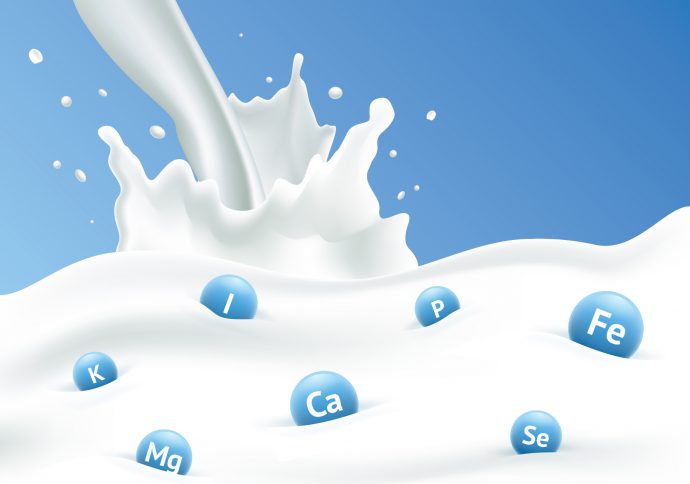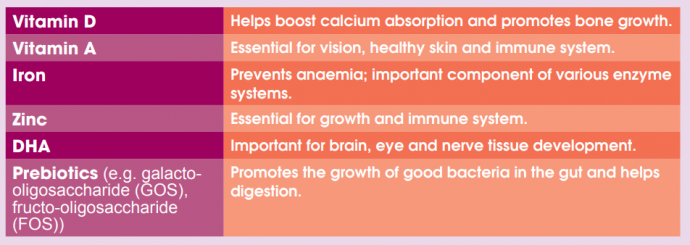Rich in nutrients, milk is one of the best choices to complement a child’s diet and promote healthy growth and development. When we talk about milk, various types come to mind – fresh milk, full-cream milk, UHT milk and flavoured milk. A child can consume these milk variants as they contain the needed nutrients.
It should however be emphasised that low-fat milk and skimmed milk are not recommended for children. Removing fat from these milk also removes some important nutrients such as fatty acids and fat-soluble vitamins.
Parents can also consider giving their toddlers or pre-school children milk formulated for kids. Formulated milk powder for children (FMPC) has been prepared for children of different ages and fortified with various nutrients. Read on to find out more about FMPC and how to use these appropriately to contribute to meeting the nutrients needed by your children.
Why FMPC?
Today, both parents in many families take up full time jobs to make ends meet. Thus, they may be too busy or do not have the opportunity to provide a balanced diet for their kids. These growing children are left to the care of their grandparents, nannies or day-care centres.
These caregivers may overlook the nutritional requirements of the children or give in to their unhealthy requests. Because of this, kids may develop poor dietary habits by frequently having a high intake of sugar, salt, fat and oil, or insufficient fruits and vegetables. Picky eaters may face more severe nutritional consequences if parents fail to pay attention to their diet while they are still young.
Under such circumstances, FMPC can be recommended as part of the child’s daily diet, to help fill the nutrient gaps that arise from a poor diet. FMPC, previously referred to as “growing-up formula”, is a product formulated based on the nutritional requirements (nutritionists call these recommended nutrient intake or RNI) for growing children aged one to nine. These products are also fortified with various nutrients and other food components to enhance their nutritional value.
Fortification of FMPC
Food Regulations 1985 has stipulated that every FMPC product follows a standard in terms of quality and nutrient content in order to meet nutritional needs of growing children. It must contain a specified concentration of fat and protein, a minimum amount of energy, and a number of vitamins and minerals. FMPC is a good source of various essential nutrients readily available in milk, such as protein, calcium, potassium, phosphorus, and several vitamins such as vitamin D, A, B12 and riboflavin.
However, to further enhance the nutritional value of FMPC, it may be fortified with several nutrients to increase their concentrations and to add nutrients and other food components not found in milk in significant amounts. Here are some examples:
Appropriate use of FMPC
FMPC is positioned as a supplement to the daily diet of a growing child, and not to replace her regular meals. It is recommended to use this milk to provide up to 1/3 of the recommended daily nutrient needs of a child. But remember, a balanced and varied diet is still a priority. Milk, regardless of type, should not be the sole source of nutrients.
Consider these:
Choose based on the child’s age range. FMPC in the market are available with slightly different nutrient composition, targeted for children of various age categories. It would be wise to select one appropriate for the child’s age.
Check the label/nutrition info panel
- Don’t be confused with the complicated terms or ingredients on the label. Do your research and find out what they mean. Certain claims may be doubtful, and sometimes these are just marketing terms.
- Choose products with less or no added sugar by checking the ingredient list. Note that sugar may be listed as different names such as sucrose, dextrose, glucose, fructose. You can also compare the sugar content in different products. Flavoured milk generally have higher sugar content.
With almost all essential nutrients found in milk, it is an important part of a child’s diet. Choose the suitable milk products for your kids depending on their needs and taste preferences, as well as your financial means. Encourage your children to drink milk to meet the recommended intake of 2-3 servings daily, in addition to their regular balanced meals for healthy growth and development.
An educational contribution by Nutrition Society of Malaysia.









Comments